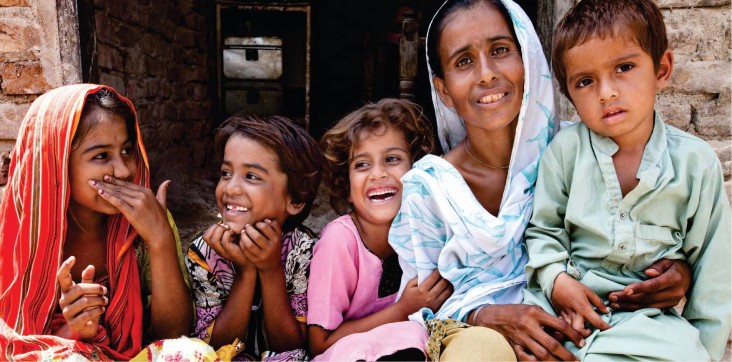Speeches Shim

The United States Agency for International Development (USAID) is partnering with the Government of Pakistan at both the federal and provincial levels to improve the lives of the people of Sindh.
HIGHLIGHT
In recent years, Sindh has faced a variety of challenges including low literacy, low per-capita income, violent extremism, malnutrition, high infant mortality, as well as natural disasters. USAID has partnered with the Sindh government to improve the lives of citizens through better access to electricity, water, education and health services, water and sanitation, economic growth and agriculture. USAID programming ensures the inclusion of women, youth, and underserved segments of society.
EDUCATION
The number of out-of-school children in Sindh has been among the highest in Pakistan, and severe flooding in 2010 exacerbated the already-dilapidated school infrastructure. Working closely with the School Education and Literacy Department, USAID is aiming to improve the quality of, and access to, education through the construction of 106 state-of-the-art schools, capacity building, and early grade reading in 10 districts of Sindh. Additionally, USAID pioneered a public-private partnership program in Sindh that contracts school administration to education management organizations to expand and improve education in public schools. USAID also established partnerships with Pakistani and American universities to establish a Center for Advanced Studies that supported applied research and prepared the next generation of engineers and water science experts. During the COVID-19 school closure, USAID’s activities transitioned to digital platforms to keep communities connected, provide COVID-19 safety protocols, and support government schools to conduct online classes for students.
HEALTH
According to the 2017 Pakistan Demographic and Health Survey, under-five mortality in Sindh has decreased by 24 percent in recent years. USAID has contributed to this reduction by supporting the demand for health services through health communication activities which reached over 60 million families. On the supply side for health services, USAID renovated 73 maternal and child health centers across Sindh, and constructed ob-gyn and maternity wards in Karachi as well as the Jacobabad Institute of Medical Sciences. These facilities serve millions from Sindh, Balochistan, and Southern Punjab. Additionally, USAID works with the Sindh Health Department to enhance disease surveillance and outbreak response to counter global health security threats. During the COVID-19 crisis, in partnership with the Government of Pakistan’s National Disaster Management Authority, USAID delivered 52 ventilators to the Sindh Government to help manage critically ill patients needing mechanical ventilation.
RESILIENCE
Water governance has emerged as a major development challenge in Sindh, with ramifications on agriculture, health and municipal governance. In Jacobabad, USAID is enabling the local government to provide sustainable clean drinking water by rehabilitating the city’s dilapidated water supply and sewerage systems. By completion of the project, over 300,000 citizens will have access to improved water supply. As a result, the municipality's capacity to address citizens’ needs will increase.
ENERGY
One of Pakistan’s crucial challenges is its energy shortfall. Unplanned outages cost the country an estimated two percent of its gross domestic product. To mitigate these outages, USAID helped rehabilitate the Guddu and Jamshoro power plants in Sindh, which added enough energy to the grid to provide power to 3.5 million people. USAID also worked with Sindh power distribution companies to reduce energy losses by providing load monitoring systems. To help utilize Jhimpir’s wind corridors, USAID funded the construction of transmission lines connecting private wind projects to the national grid, adding enough energy to provide power for another 2.6 million Pakistanis.
ECONOMIC GROWTH AND AGRICULTURE
Agriculture in Sindh suffers from low quality, lack of investment, underdeveloped value chains and weak market linkages. USAID helped farmers adopt better practices to improve productivity by supporting the development of the livestock, vegetable, and horticulture sectors in Sindh. Focused investments on upgrading quality, promoting processing, and enhancing exports have resulted in millions of dollars in private sector investment, sales revenues, and thousands of jobs.
HUMANITARIAN ASSISTANCE
USAID helps alleviate the social and economic impacts of natural and man-made disasters by supporting rescue, relief, and recovery operations, as well as disaster response preparedness and risk mitigation. For example, in the aftermath of the 2010 floods, USAID coordinated with donors to set up a humanitarian response facility in Sindh to respond to the immense human suffering from such a devastating event.

Comment
Make a general inquiry or suggest an improvement.